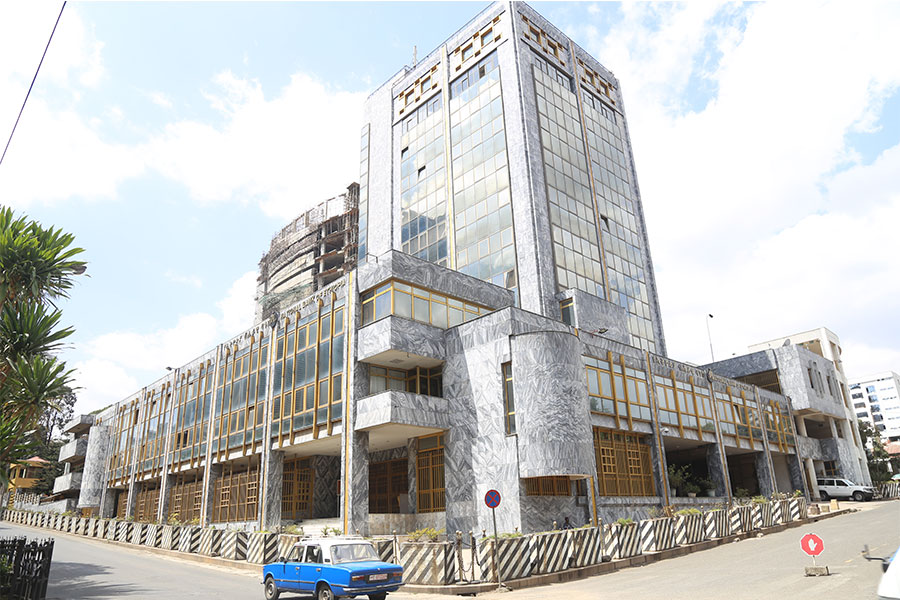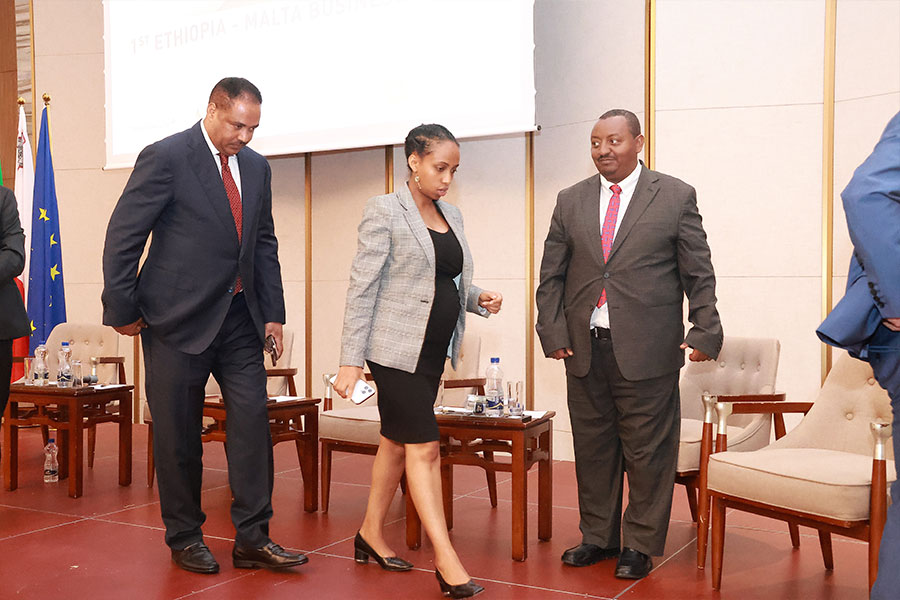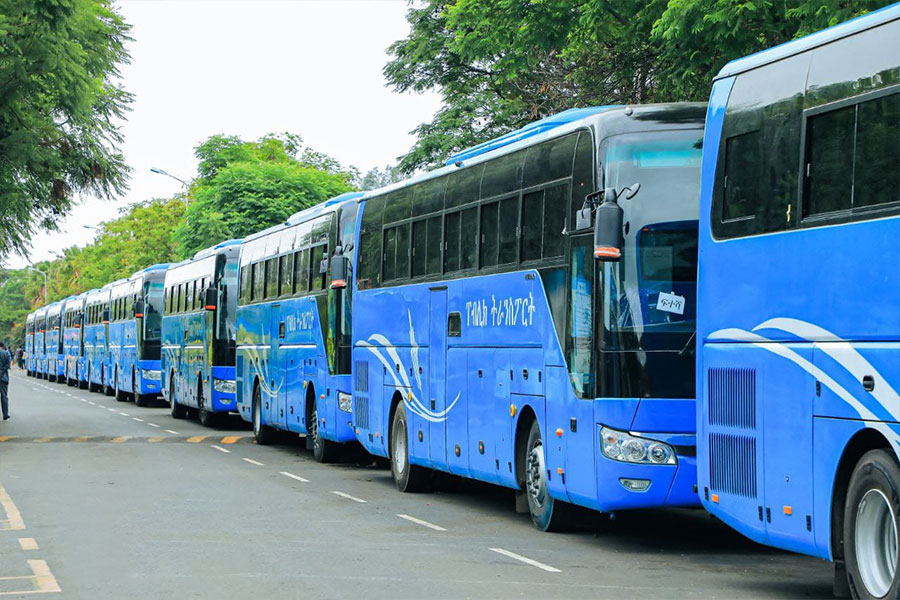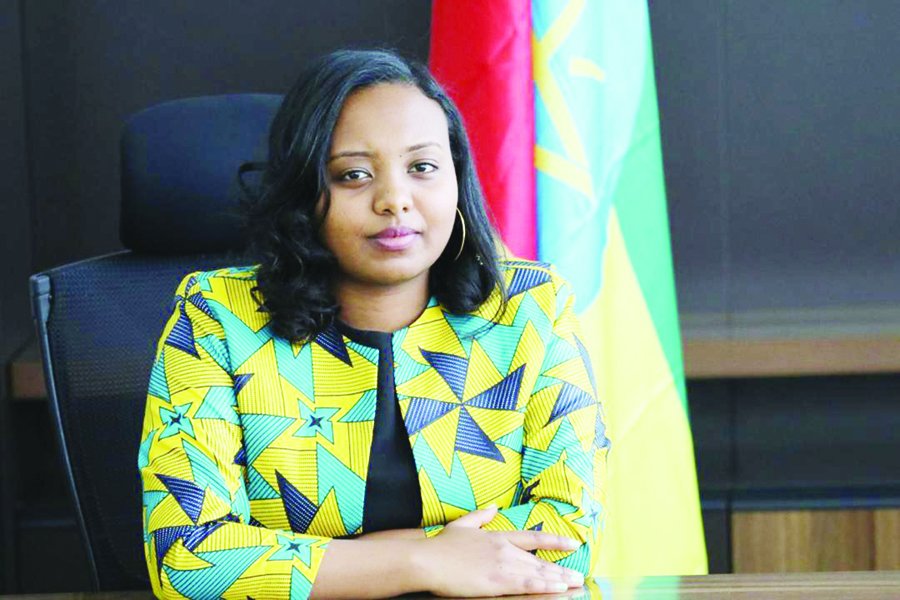
Get-As International Plc, a recognised conglomerate under the family of business magnate Getu Gelete, is positioning itself to become one of the three pioneer non-bank foreign exchange bureaus. Operating under the brand "Dugda Forex Bureau," the company submitted an application to the National Bank of Ethiopia (NBE) a month ago, depositing 45 million Br.
NBE's recent directive, known as the "green book," issued in July, allows non-bank entities to establish independent foreign exchange dealerships. The central bank's policy shift to liberalise the foreign exchange market, long plagued by inefficiencies that have distorted competition, seeks to fight back the parallel forex market. It had offered double the official rate for a dollar, a gap that has been bridged to a single digit after the Birr was floated in July this year.
"We're in this for the business opportunity it offers," said Samuel Getu, son of Getu Gelete and a chief operational officer in Get-As, speaking to Fortune.
The family sees foreign currencies as commodities they trade or assets where profit is made between buying and vending. The spread between buying and selling rates, averaging at 11.2pc last week, has attracted the company to this new line of business.
Get-As International, incorporated in 1994 by two brothers, has a diverse portfolio that is heavily invested in import trade and asset investments. It encompasses six subsidiaries, including the landmark Getu Commercial Centre, Ramada Hotel on Africa Avenue (Bole Road), and Dugda Construction. It also has a feat with horticulture investment, exporting flowers to Europe. The conglomerate is now scouting strategic locations for its forex bureaus, with the bustling Bole area being a primary consideration due to its high business traffic.
"We're strategically selecting areas with enhanced business flow," Samuel said, noting that parking availability and security are integral to their plans to open multiple branches.
Samuel's sister, Eyerusalem Getu, who studied finance in the UK, has been chosen to run the bureau. Seven employees have already been deployed, meeting the central bank's requirement for the disclosure of staff names and designations.
The NBE's green book outlines the roles, responsibilities, and requirements for independent forex bureaus operating without bank affiliations. Applicants are mandated to meet a minimum capital requirement of 15 million Br and provide a security deposit double this amount, which is placed in a blocked, interest-bearing account, at any bank. Eligibility for applying extends to entities owned by Ethiopian nationals, non-resident Ethiopians, and foreign citizens of Ethiopian origin. However, foreign nationals or companies are still barred from entering the sector.
Foreign exchange crunches have stifled fair competition and constrained the domestic economy for decades. Authorities hope adopting a market-determined exchange rate would reduce the distortions, leading to a more favourable balance of payments and increased investment.
The officials believe the new forex market regime is intended to address long-standing market distortions and promote stability and healthy forex flow.
"The bureaus are meant to make the foreign exchange market more competitive," said Vice Governor Fikadu Digafe.
The Vice Governor anticipated that these entities would enhance the foreign exchange market by quickly addressing the needs of customers seeking to buy or sell foreign currency cash notes, contributing to the establishment of a market-driven exchange rate regime.
"We've already given three approvals for licensing last week," he disclosed.
A senior official at the central bank confirmed that evaluation processes are ongoing, with several companies having submitted applications. There are no plans to limit the number of operators in the sector.
"Licensed businesses will be announced soon enough," the official said, declining to disclose applicants' identities.
Emphasising the focus on security and stability, the official disclosed that the 30 million Br financial guarantee is required to ensure compliance and financial eligibility. The deposit will be credited to the bureau after two consecutive years of successful operation without any issues or non-compliance. The NBE will require timely reporting and inspections to secure the bureaus' proper operations.
"We're dedicated to continuously reviewing and evaluating the bureaus," the official told Fortune.
Independent foreign exchange bureaus will solely buy and sell foreign exchange cash notes, excluded from any other banking activity. Additional requirements include meeting safety and security standards, counterfeit detection equipment, staff integrity, and insurance. The bureaus should also comply with surrender requirements during periods of excess reserves, depositing these funds with banks.
However, Governor Mamo Mihretu announced a few weeks ago that forex bureaus can participate in remittance.
The Ministry of Trade & Regional Integration (MoTRI) has registered these businesses under the banking and finance licensing category for the past month.
"Registrations are ongoing," said Jirata Nemera, the ministry's licensing head.
He disclosed that share companies are expected to hold a general assembly to raise capital for the registration requirement, while private companies will have no such obligations.
Forex bureaus are not new globally. They have been operating since 1927, originating from a barbershop near Stockholm Central Station in Sweden. The high volume of tourists in the area, with high demand for foreign currencies, prompted the owner to convert the shop into a small foreign exchange bureau.
Domestic banks have been offering exchange services since the "green book" initiated foreign exchange liberalisation. The Birr has depreciated by around 120pc against the Dollar since July. Additional focus has recently been given to remittances, particularly during the surge of holidays in September, strengthening forex realisations and further dampening the parallel market.
The central bank recently launched a campaign dubbed "Debo" and "unite.et," initiatives designed to boost inward remittance flows. It is a six-month initiative to increase foreign currency inflows, featuring attractive exchange rates for remittances, opening foreign currency accounts, and introducing financial products tied to remittances, such as mortgage, vehicle, and SME loans. Domestic banks have collectively allocated 100 billion Br to support the initiative, the website, "unite.et" offers cross-border account opening with Ethiopian and selected foreign banks, as well as instant money transfers.
"It's a good business opportunity for the banks," said Demissew Kassahun, secretary-general of the Ethiopian Bankers Association.
Veteran financial consultant Eshetu Fantaye has lauded the establishment of forex bureaus, citing their potential to offer greater accessibility, formalisation, transparency, and accountability within the foreign exchange market. Drawing from historical experience, he noted that forex bureaus have the potential to contribute to price discovery, market predictability, and the facilitation of information networks, areas where traditional financial institutions may have limitations.
"It's a wise move by NBE’s foreign exchange bureau," he said.
According to Eshetu, the market's depth and competitiveness are essential in encouraging a conducive environment for foreign exchange trading, enabling traders to mobilise foreign currency effectively. He anticipates that the NBE, as the regulator, will continue to monitor the bureaus' daily trading activities promptly, employing technologies to detect potential money laundering.
He urged that forex bureaus should be strategically located in areas with high levels of informal trading activities, positioning them as essential marketplaces for facilitating foreign exchange transactions. However, he cautioned the regulators about the need for appropriate allocation of foreign exchange to prevent the bureaus from experiencing shortages. He warned that neglecting to intervene could lead to a resurgence of the parallel market.
Recalling his experience in countries like Nigeria, Eshetu observed regulators intermittently inject millions of dollars into the system to keep exchanges flowing and enhance operations.
"Forex bureaus need to become part of the money and forex market operation," he told Fortune, stating that they need due attention and treatment similar to banks.
PUBLISHED ON
Sep 22,2024 [ VOL
25 , NO
1273]

In-Picture | Mar 16,2024

Fortune News | Aug 13,2022

Radar | Feb 08,2020

Fortune News | Jul 07,2024

Radar | Aug 13,2022

Dec 22 , 2024 . By TIZITA SHEWAFERAW
Charged with transforming colossal state-owned enterprises into modern and competitiv...

Aug 18 , 2024 . By AKSAH ITALO
Although predictable Yonas Zerihun's job in the ride-hailing service is not immune to...

Jul 28 , 2024 . By TIZITA SHEWAFERAW
Unhabitual, perhaps too many, Samuel Gebreyohannes, 38, used to occasionally enjoy a couple of beers at breakfast. However, he recently swit...

Jul 13 , 2024 . By AKSAH ITALO
Investors who rely on tractors, trucks, and field vehicles for commuting, transporting commodities, and f...

Nov 1 , 2025
The National Bank of Ethiopia (NBE) issued a statement two weeks ago that appeared to...

Oct 25 , 2025
The regulatory machinery is on overdrive. In only two years, no fewer than 35 new pro...

Oct 18 , 2025
The political establishment, notably the ruling party and its top brass, has become p...

Oct 11 , 2025
Ladislas Farago, a roving Associated Press (AP) correspondent, arrived in Ethiopia in...